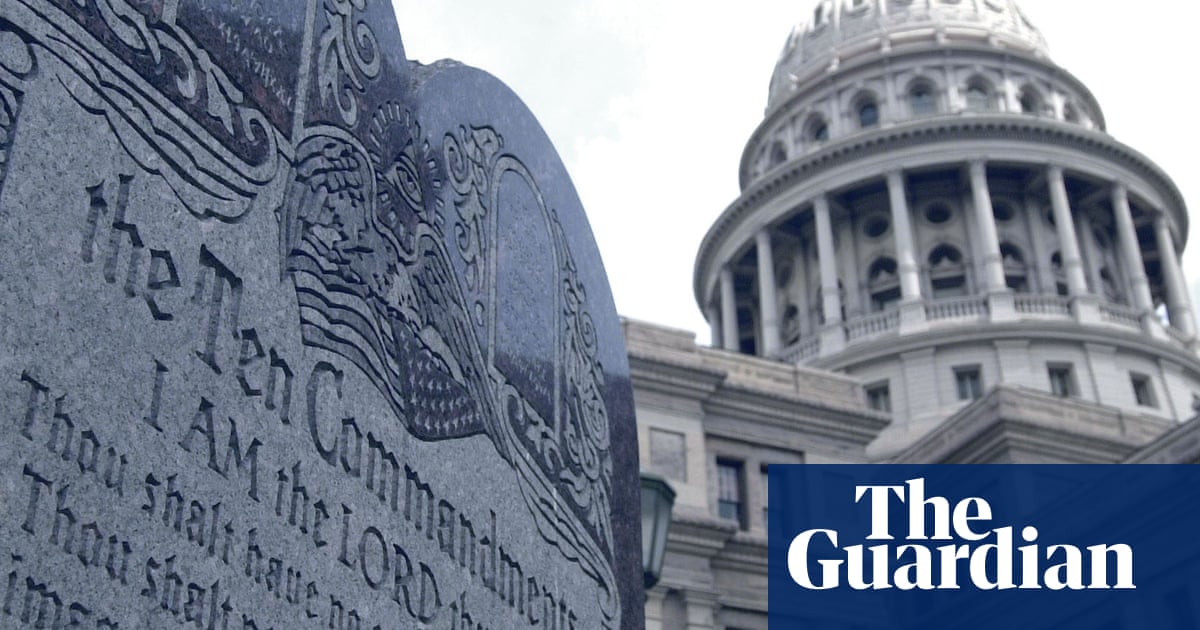Texas will require all public school classrooms to display the Ten Commandments under a new law that will make the state the nation’s largest to attempt to impose such a mandate.
The bill, which was signed into law by Governor Greg Abbott, is expected to draw a legal challenge from critics who consider it an unconstitutional violation of the separation of church and state.
A similar law in Louisiana was blocked when a federal appeals court ruled Friday that it was unconstitutional. Arkansas also has a similar law that has been challenged in federal court.
The Texas measure easily passed in the Republican-controlled state House and Senate in the legislative session that ended on 2 June.
“The focus of this bill is to look at what is historically important to our nation educationally and judicially,” Republican state representative Candy Noble, a co-sponsor of the bill, said when it passed the House.
The Ten Commandments laws are among efforts, mainly in conservative-led states, to insert religion into public schools. Texas lawmakers also passed a bill that lets school districts provide students and staff a daily voluntary period of prayer or time to read a religious text during school hours.
Texas’ law requires public schools to post in classrooms a 16 x 20in (41 x 51cm) poster or framed copy of a specific English version of the commandments, even though translations and interpretations vary across denominations, faiths and languages and may differ in homes and houses of worship.
Supporters say the Ten Commandments are part of the foundation of the United States’ judicial and educational systems and should be displayed.
Opponents, including some Christian and other faith leaders, say the Ten Commandments and prayer measures infringe on others’ religious freedom.
A letter signed this year by dozens of Christian and Jewish faith leaders opposing the bill noted that Texas has thousands of students of other faiths who might have no connection to the Ten Commandments. Texas has nearly 6 million students in about 9,100 public schools.
In 2005, Abbott, who was state attorney general at the time, successfully argued before the supreme court that Texas could keep a Ten Commandments monument on the grounds of its capitol.
Louisiana’s law has twice been ruled unconstitutional by federal courts, first by US district judge John deGravelles and then again by a three-judge panel of the fifth US circuit court of appeals, which also considers cases from Texas.
State attorney general Liz Murrell said she would appeal and pledged to take it to the US supreme court if necessary.
